#patrick pearse
Text
The Wayfarer
by Patrick Pearse
The beauty of the world hath made me sad,
This beauty that will pass;
Sometimes my heart hath shaken with great joy
To see a leaping squirrel in a tree,
Or a red lady-bird upon a stalk,
Or little rabbits in a field at evening,
Lit by a slanting sun,
Or some green hill where shadows drifted by
Some quiet hill where mountainy man hath sown
And soon would reap; near to the gate of Heaven;
Or children with bare feet upon the sands
Of some ebbed sea, or playing on the streets
Of little towns in Connacht,
Things young and happy.
And then my heart hath told me:
These will pass,
Will pass and change, will die and be no more,
Things bright and green, things young and happy;
And I have gone upon my way
Sorrowful.
86 notes
·
View notes
Text
I am Ireland:
I am older than the Hag of Beara.
Great my glory:
I who bore brave Cú Chulainn.
Great my shame:
My own children that sold their mother.
Great my pain:
My irreconcilable enemies who harass me continually.
Great my sorrow:
That crowd, in whom I placed my trust, died.
I am Ireland:
I am lonelier than the Hag of Beara.
- I am Ireland by Patrick Pearse.
#not tolkien#nottolkien#poem#poetry#patrick pearse#i am ireland#Mise Éire#translation#rest in piss elizabeth you leech#ireland#irish#ding dong the witch is dead
533 notes
·
View notes
Text

15 notes
·
View notes
Photo
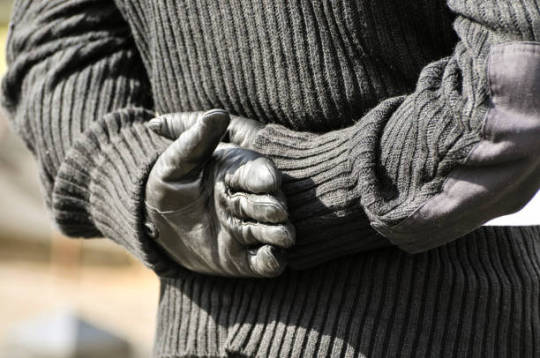
“They think that they have pacified Ireland. They think that they have purchased half of us and intimidated the other half. They think that they have foreseen everything, think that they have provided against everything.
But the fools, oh, the fools! They have left us our Fenian dead, and while Ireland holds these graves, Ireland unfree shall never be at peace”.
Patrick Pearse - in his famous speech at the graveside of the militant Fenian O’ Donovan Rossa at Glasnesvin Cemetery in Dublin, in 1915.
53 notes
·
View notes
Text
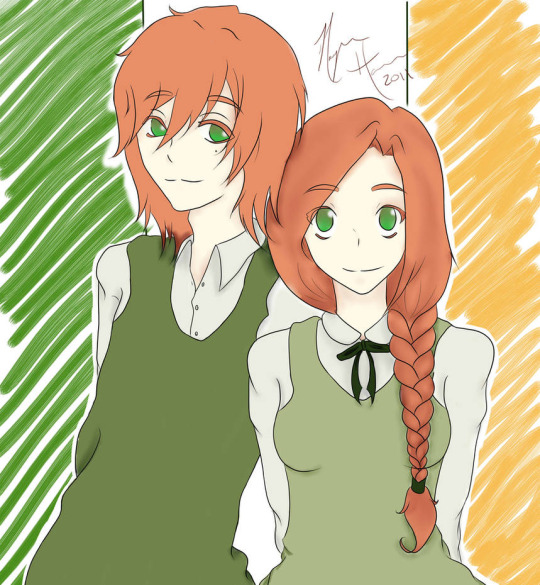
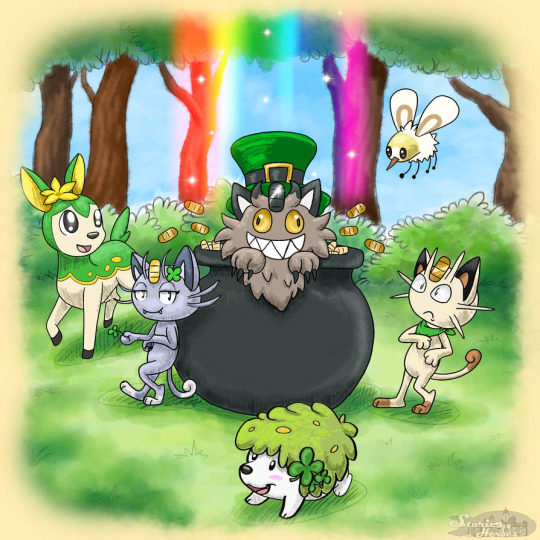
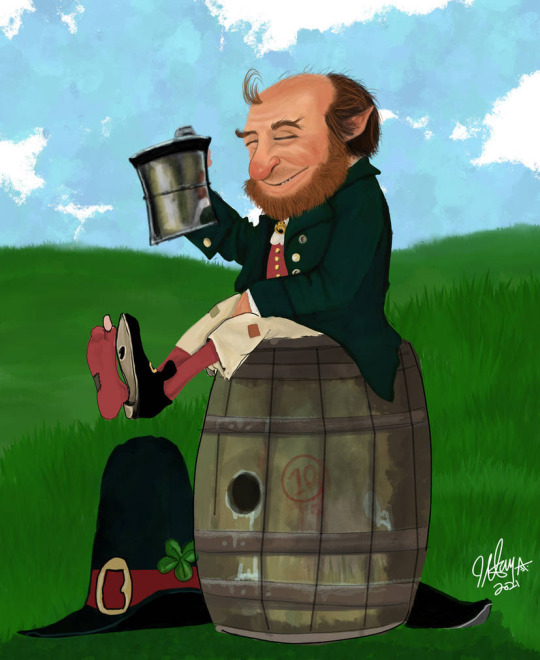

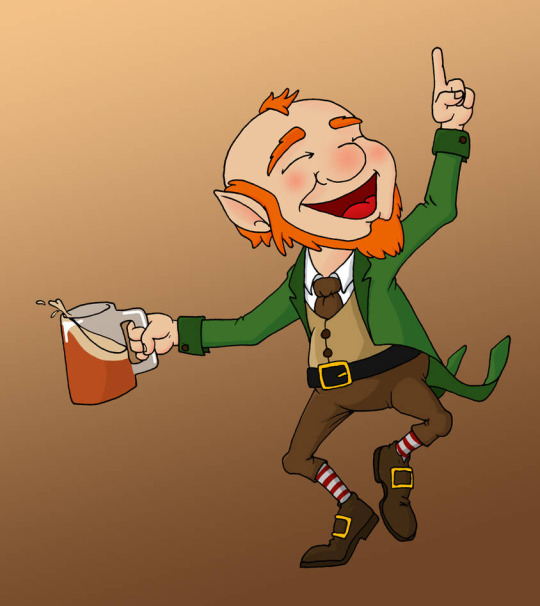
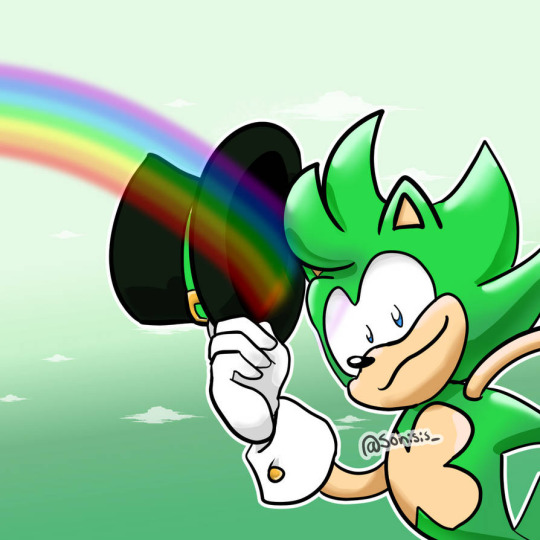

Happy St Paddy’s Day
#shut up alex#personal#st patrick’s day#st patricks day#irish#ireland#celtic#irish american#leprechaun#st patrick#cu chulainn#hugh o’neill#brian boru#theobald wolfe tone#daniel o’connell#charles stewart parnell#patrick pearse#michael collins#bobby sands#sonic#pokémon#sonic the hedgehog#st patricks day 2024
6 notes
·
View notes
Text

A black and white portrait of Pádraig Pearse

A coloured version of the same photo by irelandincolour
#History#European history#Irish history#World history#Ireland#Pádraig Pearse#Padraic Pearse#Patrick Pearse
4 notes
·
View notes
Text
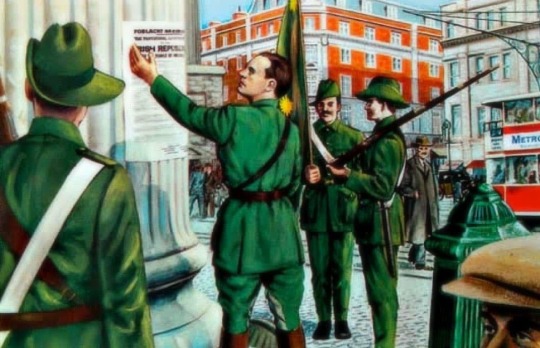
A mezzogiorno e quattro minuti del lunedì di Pasqua del 1916, Pádraig Pearse cammina su O'Connell Street a Dublino e legge la proclamazione a nome del governo provvisorio, proclamando l'intera Irlanda come Repubblica sovrana e indipendente. La nostra bandiera nazionale è issata sopra il GPO.
1 note
·
View note
Text
THE WAYFARER
The beauty of the world hath made me sad,
This beauty that will pass;
Sometimes my heart hath shaken with great joy
To see a leaping squirrel in a tree,
Or a red lady-bird upon a stalk,
Or little rabbits in a field at evening,
Lit by a slanting sun,
Or some green hill where shadows drifted by
Some quiet hill where mountainy man hath sown
And soon would reap; near to the gate of Heaven;
Or children with bare feet upon the sands
Of some ebbed sea, or playing on the streets
Of little towns in Connacht,
Things young and happy.
And then my heart hath told me:
These will pass,
Will pass and change, will die and be no more,
Things bright and green, things young and happy;
And I have gone upon my way
Sorrowful.
0 notes
Text
Sono L'Irlanda di Patrick Pearse - Recensione
Sono L’Irlanda di Patrick Pearse – Recensione
Sono L’Irlanda. Patrick Pearse potrebbe ancora gridarlo forte!
L’Irlanda dell’inizio ‘900 è un paese pronto ad esplodere. Seppur ancora una minoranza, i ribelli sono pronti a dare battaglia contro il nemico inglese.
L’isola verde è una terra quasi mistica, dove l’eredità dei Celti è viva più che mai e dove la religione occupa una parte importante della vita di tutti i giorni.
Patrick Pearse lo…
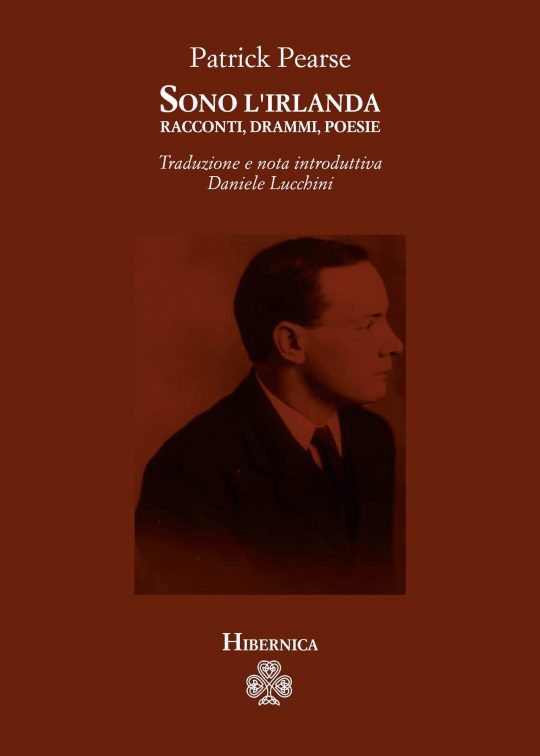
View On WordPress
#Dublino#Easter rising#esercito inglese#General Post Office Dublino#Hibernica#irlanda#libro irlanda#Patrick Pearse#poesie Irlanda#questione irlandese#Sono l&039;Irlanda#Sono l&039;Irlanda recensione#Sono l&039;Irlanda trama
0 notes
Text
my grandad is staunchly pro israeli. I don’t know how or why. I don’t know how he isn’t seeing the apartments being bombed.
how does he see the gaza bombings as okay?
and something even crazier is he supports the irish, who went through very similar circumstances when even when he was alive!
maybe it has something to do with him being jewish, but there are so many fucking anti-zionist jewish people
even my own mother supports these bombings
i just want to know why
why
why
its almost ten thousand now.
i need to take my #((##;#;#;% anti depressants. fxnk
why am i thinking about genocide at my #()# age
its not like i can do #)(# about it when the country i live in is funding it
#palestine#genocide#israel#i hate that i cant do shit#i wish i could do shit#sometimes i think of patrick pearse and ask myself if i should go to israel and do something similar to what they did#but i would get fucking murdered#it would spread awareness though#except they would probably call me a terrorist like they do with all the journalists#but maybe because i’d have citizenship#and im white#and a girl#maybe#what the fuck would i do though#its not like i can get a gun and shoot the idf#that would be asap terrorist label#and i’d be killed real quick#what can i fucking do
8 notes
·
View notes
Text
#OTD in 1803 – Irish Rebellion of 1803 | Following an explosion at his arms depot on this date, Robert Emmet brings forward his planned rebellion in Dublin to 23 July.
The glorious failure of the 1798 rebellion had a profound impact on the young Robert Emmet. He romanticised the nationalist ideals held by the organisers, as demonstrated by an ode he wrote to them:
“And those who were laid at rest
Oh! Hallowed be each name;
Their memories are forever blest –
Consigned to endless fame.”
Today there are many reminders of Robert Emmet’s 1803 Rebellion in Dublin,…

View On WordPress
#&039;Ghosts&039;#1798 United Irishmen Rebellion#1800 Act of Union#Dublin#Dublin Castle#England#Irish Rebellion of 1803#Marshalsea Street#Padraig Pearse#Patrick Street#Robert Emmet#St. Catherine&039;s Church#Thomas Street#United Kingdom
8 notes
·
View notes
Text
Easter Rising
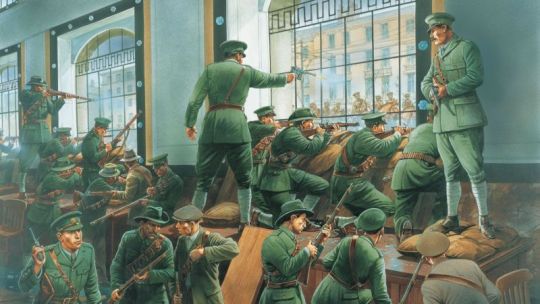
1916 – Easter Rising: Irish rebels, led by Patrick Pearse and James Connolly, launch an uprising in Dublin against British rule and proclaim an Irish Republic.
#Apr.24.1916#Easter Rising#Patrick Pearse#Óglaigh na hÉireann#IRB#James Connolly#The Irish Citizen Army#Proclamation of the Irish Republic#history today
8 notes
·
View notes
Text
On S4C they call Patrick 'Padraig' like Padraig Pearse so uhhhh which rising leader is Spongebob then?
1 note
·
View note
Text
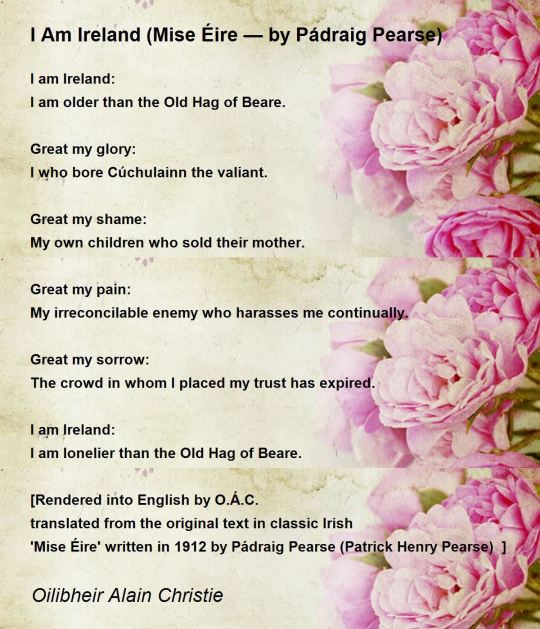
13 notes
·
View notes
Photo
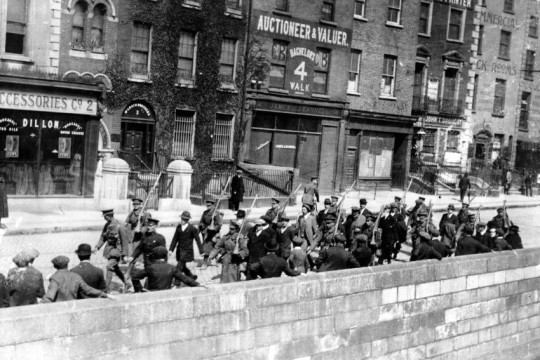
On this day, 29 April 1916, the leaders of the Irish Easter Rising against British rule surrendered unconditionally at 16 Moore Street in Dublin. They had been forced to abandon their HQ at the General Post Office after the building was set on fire by the British artillery bombardment. Fifty rebels, including Socialist James Connolly who had been wounded earlier in the fighting, made a desperate escape under heavy gunfire. They took refuge in a house on Henry Place, where one of them accidentally shot dead the owner’s teenage daughter. They tunnelled through adjacent buildings until they established a new position at 16 Moore Street. But “In order to prevent the further slaughter of Dublin citizens, and in the hope of saving the lives of our followers now surrounded and hopelessly outnumbered,” they surrendered unconditionally on Saturday 29th. 16 leaders of the Rising were executed, including Patrick Pearse and James Connolly. Having been shot in the ankle during the fighting, Connolly faced the firing squad tied to a chair. While the rising involved a relatively small number of people, with around 1,200 fighters in Dublin, the brutal reaction of British authorities spurred a huge growth in support for Irish independence, and was a key event leading to the creation of the Irish Free State in 1922. More information, sources and map: https://stories.workingclasshistory.com/article/10066/End-of-the-Easter-Rising To access this hyperlink, click our link in bio then click this photo Pictured: Those surrendered being escorted by British troops https://www.facebook.com/photo.php?fbid=616936833812869&set=a.602588028581083&type=3
120 notes
·
View notes
Text
Sunday sounds: Welcome home
This very recent piece of news, courtesy of The Guardian, brought today's sounds as a natural choice (yes, Sunday sounds are going to also be a sort of fixture on this page): https://www.theguardian.com/uk-news/2023/aug/18/death-masks-recreate-face-of-bonnie-prince-charlie. And I have to say casting got it rather right with Andrew Gower. Mark me, hehe.
Óró, sé do bheatha 'bhaile literally means welcome home and before its incarnation as one of the legendary Irish Civil War songs, it was one of the Jacobite ballads, directly linked to the Third Rising, Culloden and all the rest that keeps us busy and involved in here.
youtube
The Dubliners' version is not my favorite (in my book, Derek Warfield hits the right energy), but it is the closest one to the old Jacobite tune the Victorians dutifully rediscovered around 1855, combining it with the now classical Patrick Pearse lyrics. And yes, I have listened very carefully, albeit with absolutely nothing under my belt than my enthusiasm (and certainly no damn Gaelic proficiency).
30 notes
·
View notes